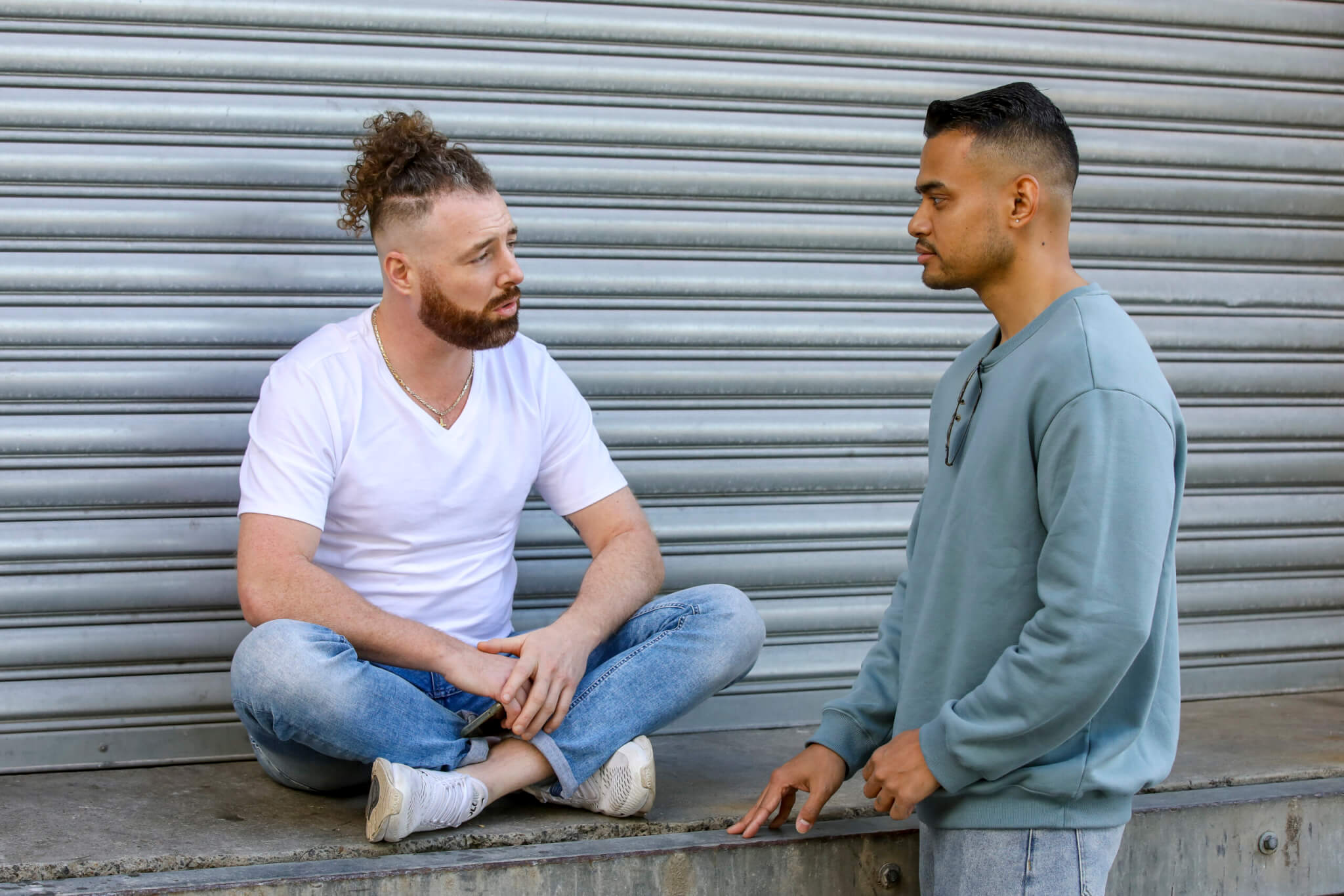The Impact of Our Services – 2020 Year in Review
A letter from our CEO, Kevin Barrow

2020 was a year of uncertainty and changes; a year that was undoubtedly hard for everyone. Much of the world was forced to adapt to a new “Covid normal”, impacting our mental health, social life, work and living circumstances.
Here at Butterfly was no different, with our staff transitioning to remote working and much of our support services heading online. This presented a unique challenge for our National Helpline, who were also dealing with increase call volumes. In response, we significantly increased our staff supervision and support, with more frequent wellbeing checks and formal supervision provided. The Federal Government also provided some much-needed additional funding to increase our level of support, with extra staff enabling us to respond to more requests for support.
We also continued to support our community in the times that they needed it the most. For the one million Australians living with an eating disorder and the many more at risk of developing one, COVID-19 continues to be undeniably difficult. Changes in routines, along with heightened levels of anxiety, stress and uncertainty have led to many reporting an increase in eating disorder behaviours and thoughts. Isolation was also a worrying part of 2020, with face-to-face support from networks such as treatment providers, friends and family difficult if not impossible.
Increased calls, webchats and emails to our Helpline represented these challenges for our community, with contacts increasing by 43 per cent during the pandemic. From March to August 2020, our Helpline logged 15,835 calls, emails and webchats demonstrating the dire impact COVID-19 had on those living with eating disorders and body image concerns.
Over the pandemic period, 85 per cent of contacts were people calling the Helpline for the first time. This was an increase from 71 per cent of new contacts in the same period a year ago.
Unfortunately, the incredible demand for eating disorder services is not going away any time soon. We saw a 34% increase in demand to our Helpline overall from Jan 2020-Jan 2021.
Further impacts of our services in 2020 included…
Prevention and Education
Since 2006, all education programs – to young people, professionals, and parents – had been provided face to face. Sudden enforced restrictions due to COVID-19 had the potential to significantly impact this work in our schools and communities. However, we successfully and quickly converted to a virtual format; training the team of sessional presenters and working with schools to make sessions available online. Sessions were made available by early May and continue to be over-subscribed well into the new year.
Our first ‘COVID Safe’ schools presentation saw 309 students (Year 7-8) logging on from an independent Victorian school. The school reported the benefit to students to have a ‘different’ voice within their remote learning environment. Many students asked questions of the presenter at the end of the session – mostly around bullying and cyber-bullying, and also about the Butterfly National Helpline. There have been some surprising advantages of delivering this content online, including an increase in the number and type of questions and comments from young people who are clearly more comfortable ‘speak up’ in this environment.
Despite significant challenges, 2020 was the year where our programs achieved the incredible milestone of reaching more than one million young Australians, with over 8,300 professionals trained and parents supported.
Treatment and Support Services
Unsurprisingly, our treatment and support services also saw a spike in enquiries during 2020, and we have increased our program offerings, including Support Groups and the Youth Program, to be able to help even more people. Thanks to funding from our partner FGG, we were well underway with developing an online version of the Youth Program before COVID hit, so were able to quickly transition this program and others to online delivery. Although not without its challenges, this did mean we were able to reach more people, in more locations, than ever before, with strong positive outcomes.
Eating Disorder Alliance of Australia
Formally launched on 29 April, the Eating Disorder Alliance of Australia outlined our understanding and commitment to collaborating within the sector. Our aim is to ensure advocacy, resources and communications are evidence-based and best practice, providing a unified voice for our community.
Let’s Talk: Podcast
2020 also saw the launch of our first podcast. Titled Let’s Talk, we covered a range of topics including sexuality and eating disorders, males and body images, sports, life in recovery and young people, body image and social media. We will continue our podcast in 2021 and look forward to launching our second season.
MAYDAYS 2020
Butterfly’s annual campaign and tax appeal draws on the experiences of Australians to highlight key concerns relating to eating disorders and calls for change.
In 2020, MAYDAYS ‘#PushingPastPostcodes’ called for improved access to eating disorder treatment and recovery services for people in regional and remote areas, for people with a low socioeconomic status, and for those who couldn’t otherwise access adequate outpatient care, including those discharged from residential facilities.
More than 550 Australians were surveyed in the lead up to the campaign, with alarming results revealing a significant need for better access to support for those living in regional and remote Australia.
- 94% of people in regional and remote areas currently living with an eating disorder believed that where they live is an obstacle for accessing help
- 99% believed that there needs to be more awareness around what services are available in regional and remote places for people with eating disorders
- 63% of those in regional and remote areas reported that COVID-19 had impacted their ability to seek treatment or support
- 68% of those living in regional and remote areas agreed that their experience could have been improved if the health professional had a greater knowledge of eating disorders
- 92% reported that healthcare workers in regional and remote areas needed more training and education on eating disorder treatment
- 69% of those in regional and remote areas had faced stigma from those in the healthcare system as a result of the eating disorder
Wandi Nerida
2020 was also the year that we built Australia’s first residential facility for eating disorders, Wandi Nerida. Based on the Sunshine Coast, Wandi Nerida means ‘gather together to blossom’ in the language of the Traditional Owners, the Kabi Kabi people. A safe, healing and nurturing environment, Wandi Nerida will be the only eating disorder-specific residential treatment centre in Australia providing a holistic model of care that addresses not only symptoms and behaviours, but also the underlying socio-psychological factors that can underlie and prolong a person’s illness.
Over one million Australians are currently experiencing an eating disorder, and many more are, sadly, likely to develop one. With continued advocacy and support, we intend to reduce these numbers and continue expanding our services in 2021 and in the years to come. I’d like to take this opportunity to thank you for your continued support and feedback. With your help we will reach more people and achieve more for people living with eating disorders and body dissatisfaction than ever before.
Kevin Barrow,
Butterfly CEO






















